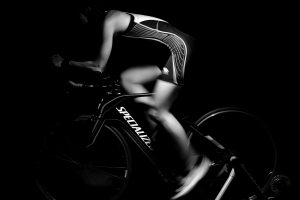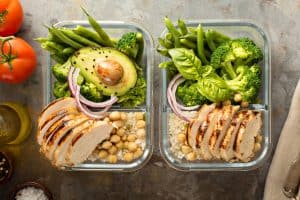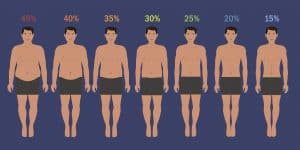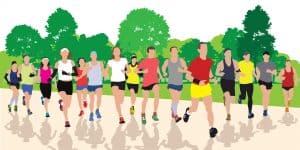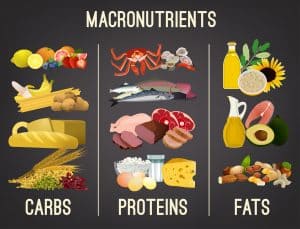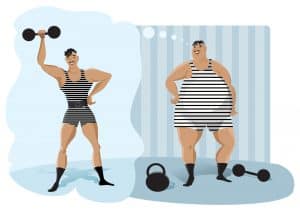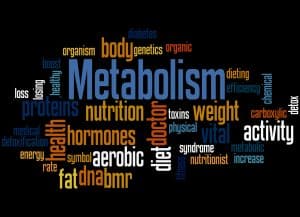I knew I had to switch up my workout routine if I wanted to get lean.
At first, the results were great. The pounds were dropping, and muscle definition was becoming apparent—this encouraged me to keep powering on.
However, it became exhausting. I attributed this to laziness and didn’t listen to what my body really wanted.
In this article, I reveal how to increase your energy for a workout.
- Table of Contents
Causes of Fatigue and Tiredness
Everyone gets tired from time to time—but when it starts to interfere with your daily life, it could be a cause for concern.
Whenever I felt my body flagging, I’d push harder. I didn’t want to give up—especially after all the progress I’ve made. This led me to feel more fatigued.
We shouldn’t be so quick to blame ourselves for something our bodies aren’t capable of doing—there are a plethora of factors that could be draining your energy.
Here are the signs to look out for:
- Persistent tiredness.
- Sore muscles.
- Headaches.
- Dizziness.
- Irritability.
- Muscle weakness.
- Impaired judgment.
- Drowsiness.
- Lack of concentration.
- Extreme Lack of motivation.
Fatigue in itself is often a symptom and not a condition. If you’re experiencing prolonged bouts of extreme tiredness or any additional symptoms, it’s advisable to chat it over with your doctor.
Now let’s look at what could be preventing you from sticking to your workout routine.
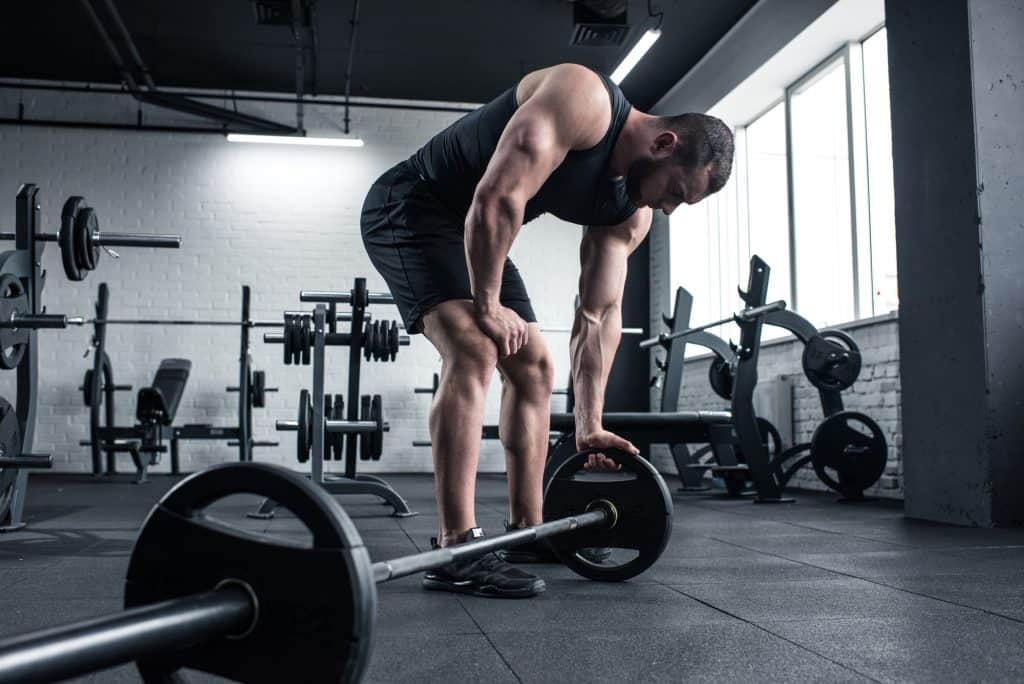
Medical Causes
- Chronic Fatigue Syndrome
A diagnosis of chronic fatigue syndrome is made when you experience persistent and severe levels of exhaustion long-term—over six months.
The causes are unclear, although theories suggest that it could be as a result of varying factors—such as viral infections or psychological stress.
- Sickness
Sometimes people experience low energy as a result of the common cold or flu. Don’t exercise when you’re ill—it could worsen your symptoms.
Hormonal Causes
- Adrenal Fatigue
Our adrenal glands produce androgens and cortisol—the stress hormone. It’s responsible for controlling blood sugar, promoting proper cardiovascular function, utilizing carbohydrates and fats, and helps in how we respond to stress.
It’s a term used in healthcare circles to describe a group of symptoms that results from prolonged mental, emotional, or physical stress. Although experts aren’t convinced adrenal fatigue is an actual medical condition.
When people are faced with long-term stress—according to the theory—their adrenal glands can’t keep up with their body’s need for hormones such as cortisol. This can cause tiredness, weakness, and low blood pressure.
- Thyroid Disorders
A thyroid disorder such as hyperthyroidism can also cause tiredness and muscle weakness. This is accompanied by other symptoms such as irritability, nervousness, or disturbed sleep.
Lifestyle
Unlike medical and hormonal conditions, you have more control over your lifestyle choices. Let’s go over some of the behaviors that could be holding you back.
- Lack of Exercise
Contrary to what you might think, exercise can boost your energy levels. Working out increases blood flow, which in turn, transports more oxygen and nutrients throughout your body—providing the fuel.
It can even combat fatigue in people with illnesses. A four-year study of cancer patients has proven that exercise can induce a higher level of all-around physical activity.
Therefore, being inactive could exacerbate your symptoms of fatigue.
- Not Enough Sleep
Reports have shown that sleeping patterns have a direct effect on fatigue. Not getting enough sleep every night—or having a disturbed sleeping schedule—leads to low energy levels.
Mental health disorders, such as depression and anxiety, often induce insomnia, which can cause fatigue.
You should be aiming for a minimum of seven hours rest per night.
- Consuming Drugs
You’d think alcohol would make you sleepy, but it raises the level of epinephrine (adrenaline) in your body—a stress hormone. This has a stimulating effect, resulting in nighttime awakenings.
Stimulants such as caffeine and nicotine cause anxiety, restlessness, and irritability. These are factors that can influence the severity of the fatigue you experience.
- Unbalanced Diet
An unbalanced diet lacking in essential nutrients and calories can make you feel lethargic. Ensure you eat enough—and that the foods you do consume contain all the vital vitamins and minerals.
What to Eat (Or Not to Eat) to Boost Energy
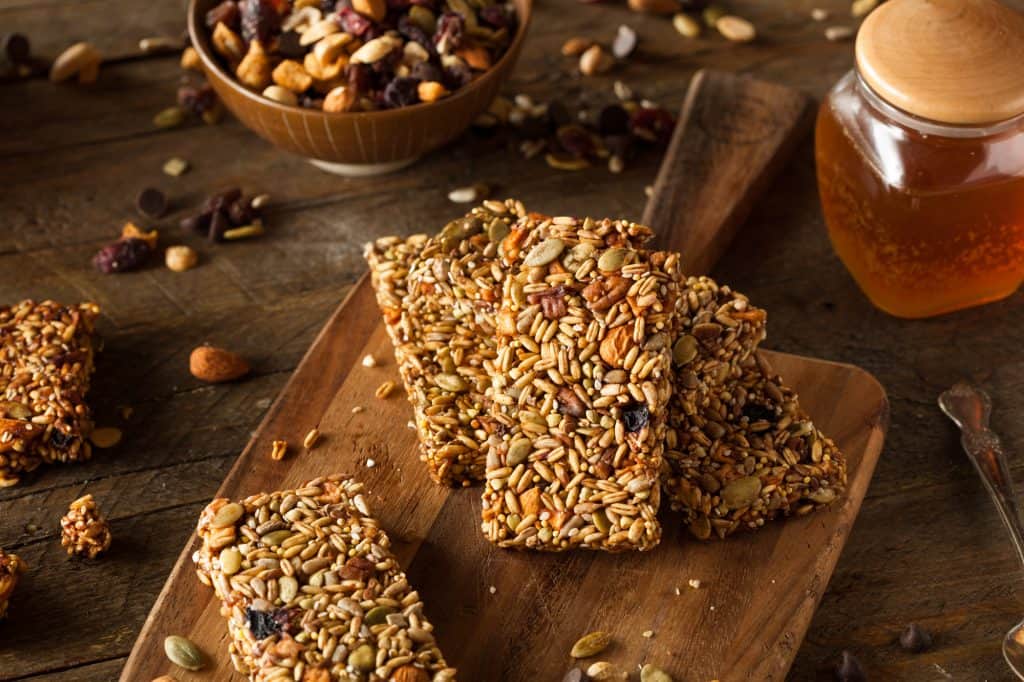
People often say that your stomach acts as a second brain—there might be some truth to that. What and when you feed your body can make a huge difference in your energy levels during a workout.
Foods to Eat Before a Workout
First of all, it’s not as much about the quantity, but the quality of the foods you eat that will benefit your training.
Glucose is the prime source of energy for exercise. Therefore, a high-carb meal is optimal before you workout. However, you need to pay attention to the type of carbs you’re consuming.
Carbs with a high glycemic index (GI) give you a quick burst of energy—which soon fades. They’re suitable for short duration exercise with high intensity—providing they’re easy on the stomach.
Lower-GI carbs are typically fiber-rich. These foods take longer to digest and therefore supply your body with a steady flow of fuel. Consider this approach if you’re aiming for a mammoth training session.
Some of the best foods to increase your energy before a workout are:
- Fresh fruit.
- Fruit smoothie.
- Pasta.
- Oatmeal.
- Cereal with milk.
- Bread.
- Energy bar.
Foods to Avoid
Fast food/junk food is heavy in oils and trans fat that will make you sleepy and promote a general feeling of heaviness.
Foods that are made up of “empty calories” might make you feel energized—in the short term—but hold little nutritional value.
Here are some to avoid eating before your workout:
- Red meat.
- Candy.
- Potato chips.
- Soda.
- Fries.
- Pizza.
- Processed meat.
- Hamburgers.
- Donuts.
Nutrition Timing
Knowing when to eat for optimal energy levels has really helped me get back on track with my routine.
Eating before your workout is essential—exercising on an empty stomach is like trying to drive a car without any fuel.
- Substantial meals such as oatmeal or pasta take time to digest—the ideal “window” is to consume up to two and a half hours before your workout.
- Lighter, faster-absorbing foods such as yogurt and fruits can be eaten up to an hour beforehand.
It will also depend on how it makes you feel. Perhaps you have a faster metabolism—if so, eating a little closer to your session might be preferable—to prevent hunger-striking mid-workout.
If you haven’t eaten by the time you hit the gym, make sure to eat one piece of fruit several minutes beforehand.
Don’t Forget About Fluids
Drinking an adequate amount of water throughout the day is essential for any healthy lifestyle.
You lose a considerable amount of fluids through sweat while exercising. Therefore it’s super important to stay hydrated during your workout.
The American College of Sports Medicine recommends fluid intake of:
Pre-workout: 0.08-0.1 fl oz per pound of body weight (5-7 ml/kg).Start drinking four hours before exercise.
Intra-workout: Intake should commence as soon as you begin exercising, and regularly throughout.
Post-workout: Replenish fluids by 16-24 fl oz for every pound of body weight lost during training.
If you’re working out for longer than an hour, consume a beverage containing electrolytes. After about 30 minutes of exercise, these nutrients also begin to deplete.
Supplements to Boost Energy for a Workout

If you’re still combating fatigue while eating a healthy diet, supplements can help increase your energy.
1
Beta-Alanine
It’s defined as a non-proteinogenic amino acid, meaning, it doesn’t take part in protein synthesis. Instead, it’s a forerunner of carnosine—which buffers the muscles from lactic acid accumulation.
Slowing down this build-up helps combat muscle fatigue—increasing endurance, and performance.
Research suggests that daily consumption of 4-6 grams is safe. One side effect is paresthesia, a temporary tingling sensation felt on your skin.
2
Creatine
Found naturally in meat and fish—and also your muscles.
Adenosine triphosphate (ATP) is an essential energy source for exercise—and what powers muscle contractions.
As your body uses ATP for energy, it loses a phosphate group and becomes adenosine diphosphate (ADP). Creatine supplies ADP with this missing phosphate, and in turn, it becomes ATP again.
This process increases your body’s energy stores.
It’s one of the most tested supplements on the planet, and it’s only proven side effect is weight gain due to water retention.
3
Nitric Oxide (NO)
Nitric oxide expands blood vessels—improving blood flow. This means more nutrients and oxygen are carried throughout your body—fueling intense workouts.
Supplements that contain NO are formulated to avoid a short-term spike in energy—so you won’t crash.
These supplements shouldn’t be taken in doses above 10 grams—and is recommended for individuals over the age of 18.
4
Caffeine
If you need a boost, a caffeinated drink—such as coffee—can oblige.
Caffeine is a natural stimulant, which affects the central nervous system—ingestion can increase energy for a workout, plus:
- Reduce mental fatigue.
- Boost alertness and focus.
- Lessen perception of effort.
- Enhance vitality.
However, it’s easy to become dependent—and since its effects are temporary, you risk crashing afterward.
5
Vitamin Supplements
- Iron
Iron is used to produce hemoglobin—the part of red blood cells that transports oxygen from your lungs throughout your body. Without sufficient levels, the process can’t be carried out effectively—this results in feeling fatigued and weak.
An iron supplement can redress the balance.
- Vitamin B12
A nutrient essential for energy production. It helps transform food into energy and keeps your body’s nerves and blood cells healthy. Inadequate levels of B12 can cause weakness and lethargy.
- Multi-Vitamin
These supplements can be a great way to “fill in the gaps” of whichever nutrients you might be lacking in your diet—this will boost your energy.
However, it’s best to obtain as much of your daily requirements through food-based sources as possible.
Furthermore, stick to the recommended dosages—exceeding levels of fat-soluble types can have serious consequences.
6
CBG Supplements
CBG (or Cannabigerol) is one of the many cannabinoids found in cannabis plant, along with THC (tetrahydrocannabinol) and CBD (cannabidiol).
CBG supplements are relatively new to the fitness market and are highly regulated, and there is limited information on its effectiveness and safety. However, some people believe that CBG may have potential health benefits, including improving energy levels.
While there is limited scientific research or evidence on the overall effects of CBG on energy levels, some people, including athletes and bodybuilder, have reported improved energy and alertness levels after taking CBG products. Some studies suggest that CBG has a stimulating effect on the body, similar to caffeine.
If you are considering using CBG supplements for its potential energy elevation benefits, it’s important to speak with a healthcare professional first.
When Is the Best Time to Workout?
The time of day you workout can also impact on energy levels:
- Morning
Early workouts are my favorite. It motivates me to get out of bed and get my day started.
Studies show that exercising as the day begins can shift your body’s natural clock (circadian rhythm). You’ll feel more alert in the morning and get tired earlier in the evening. This type of adaptation could combat sleepless nights and fatigue.
- Afternoon
Exercising between 1 p.m. and 4 p.m. will increase your performance—this is because you’ve already fueled up with two meals. It’s an ideal time for high-intensity training.
- Evening
Nighttime workouts don’t get you “hyped up” as we’ve always been told. A recent study found that working out in the evening doesn’t disrupt your sleep—slumber could even improve as a result.
Some people prefer working out at night because it has a calming effect.
A 5-Step Plan to Increase Energy Before Working out
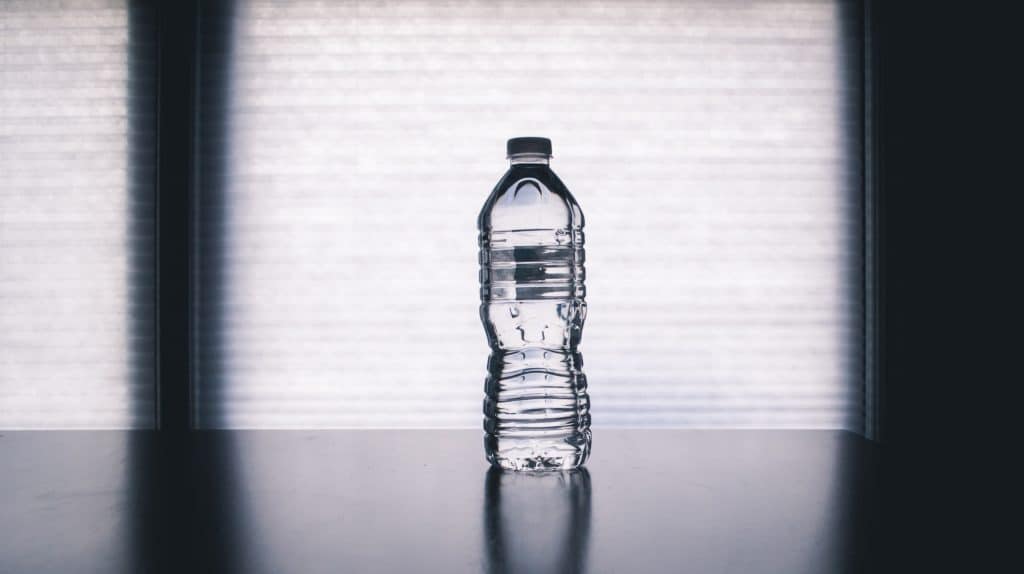
I’ve laid out the details, now let’s put it all together—here’s how to increase energy for a workout in 5 steps, step by step:
1
3-4 Hours in Advance of Exercise
- Begin pre-hydrating.
2
2-3 Hours Before Your Workout
- Continue to up your fluid intake.
- Consume a carb-rich and protein meal.
3
1 Hour or Less Prior to Training
- Take your supplements.
- If you need to eat—snack-sized portions at this stage.
- Keep drinking frequently.
4
During Training
- Maintain regular fluid consumption throughout your workout (include electrolytes for sessions over a 30-minute duration).
5
Post-Workout
- Top up your lost fluids—16-24 fl oz for every pound of body weight dropped.
- Take post-workout supplements.
- For high-intensity or endurance training sessions—eat a carb and protein-rich meal within an hour post-workout. Follow a 3:1 ratio (carb/protein) to replenish glycogen stores.
- For short or lighter sessions—a snack should be sufficient—within the hour.
Note: If you don’t have four hours prep time, the rule of thumb is—the closer to your workout, the lighter the meal should be.
What If I Still Can’t Increase Energy?
Has the thought occurred to you that you might be hitting your sessions too hard and too often?
When your body doesn’t get a proper chance to recover between exercise, it’s known as overtraining (long term) or overreaching (short term).
To be brief—you need to take a break.
Don’t think “rest” days are for losers, instead consider them part of your plan. Give your body a chance to recuperate.
The Takeaway
To increase your energy for a workout—follow this simple approach. However, if fatigue is still holding you back from reaching your goals, treat yourself to a training “vacation.”
By adopting healthier habits, you can expect to see an improvement in your energy levels—and consider taking supplements to give you a boost.
Sticking to these guides will help you achieve your goal physique and improve your overall health.



